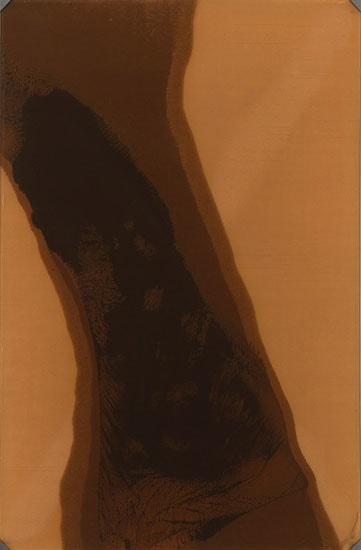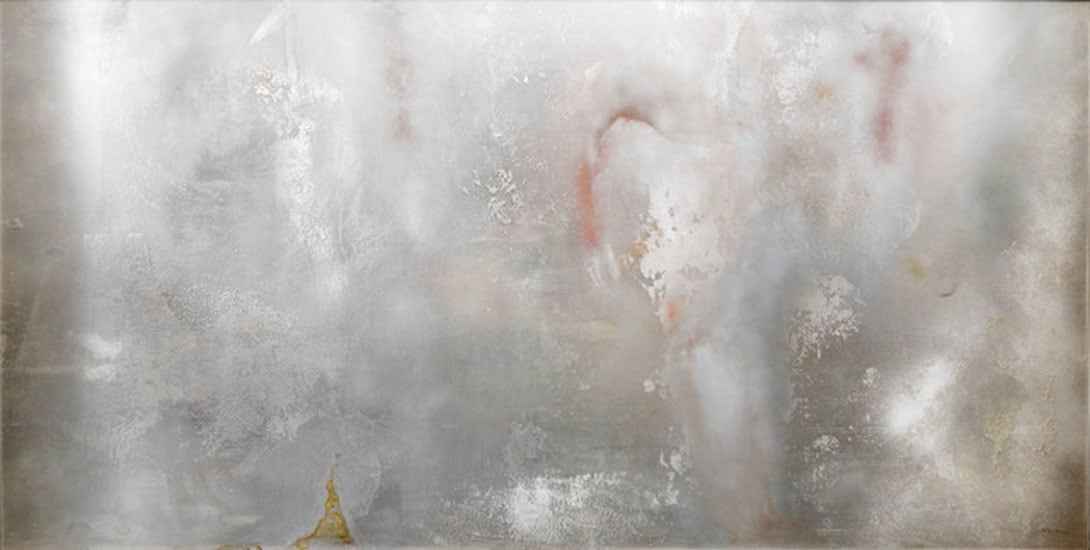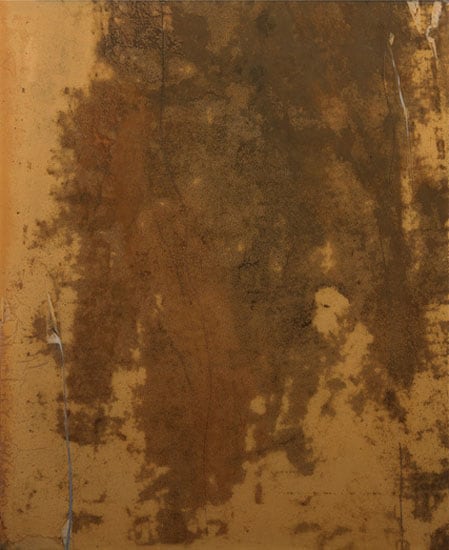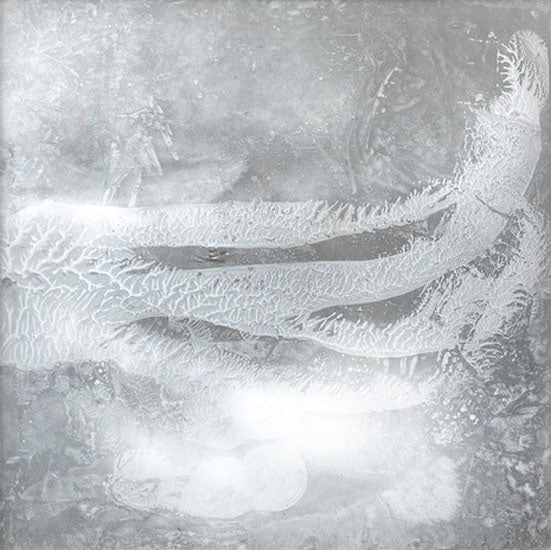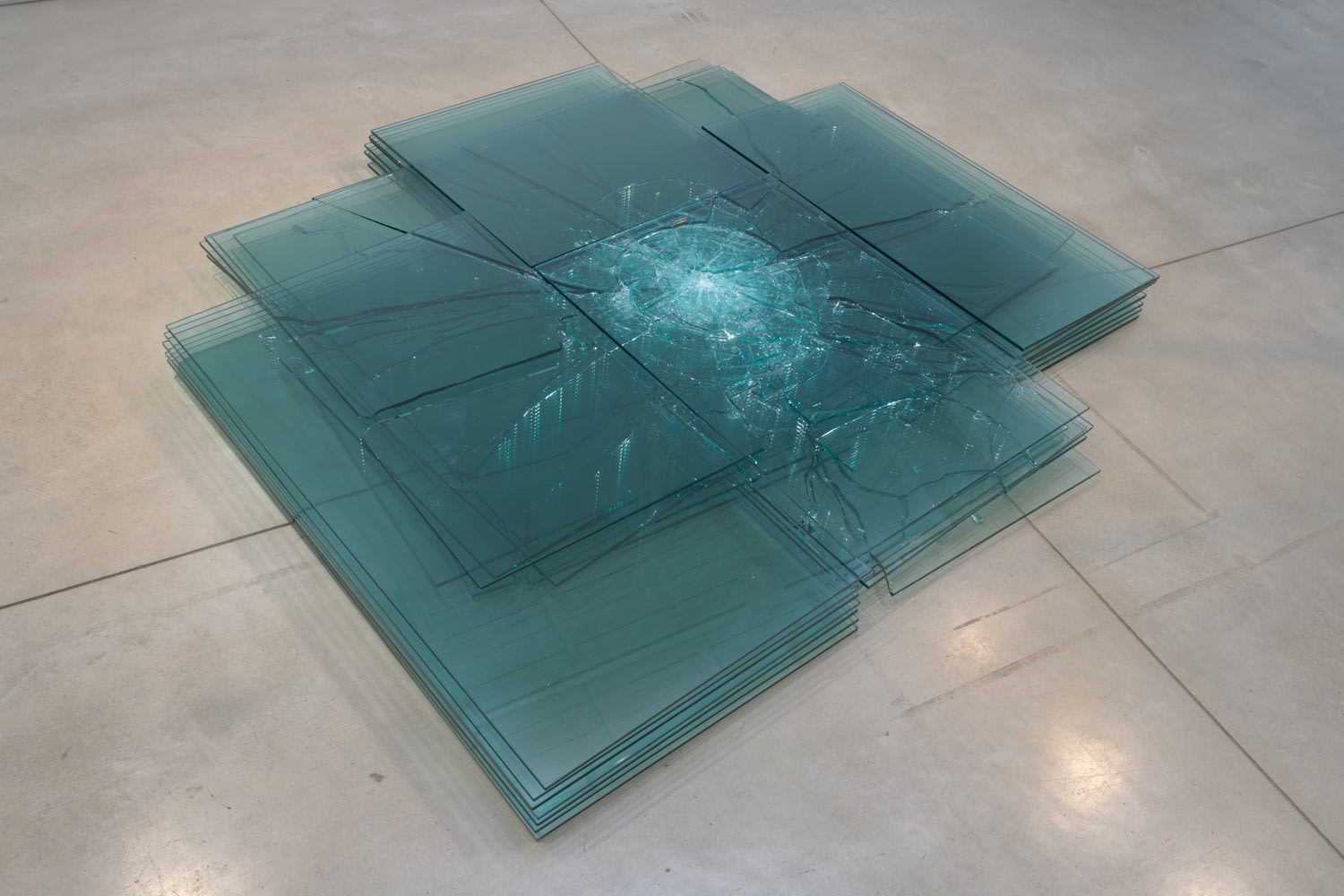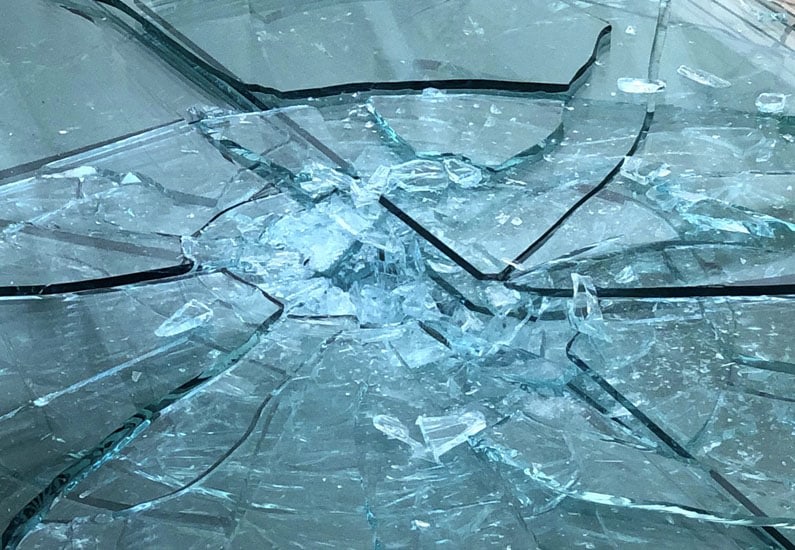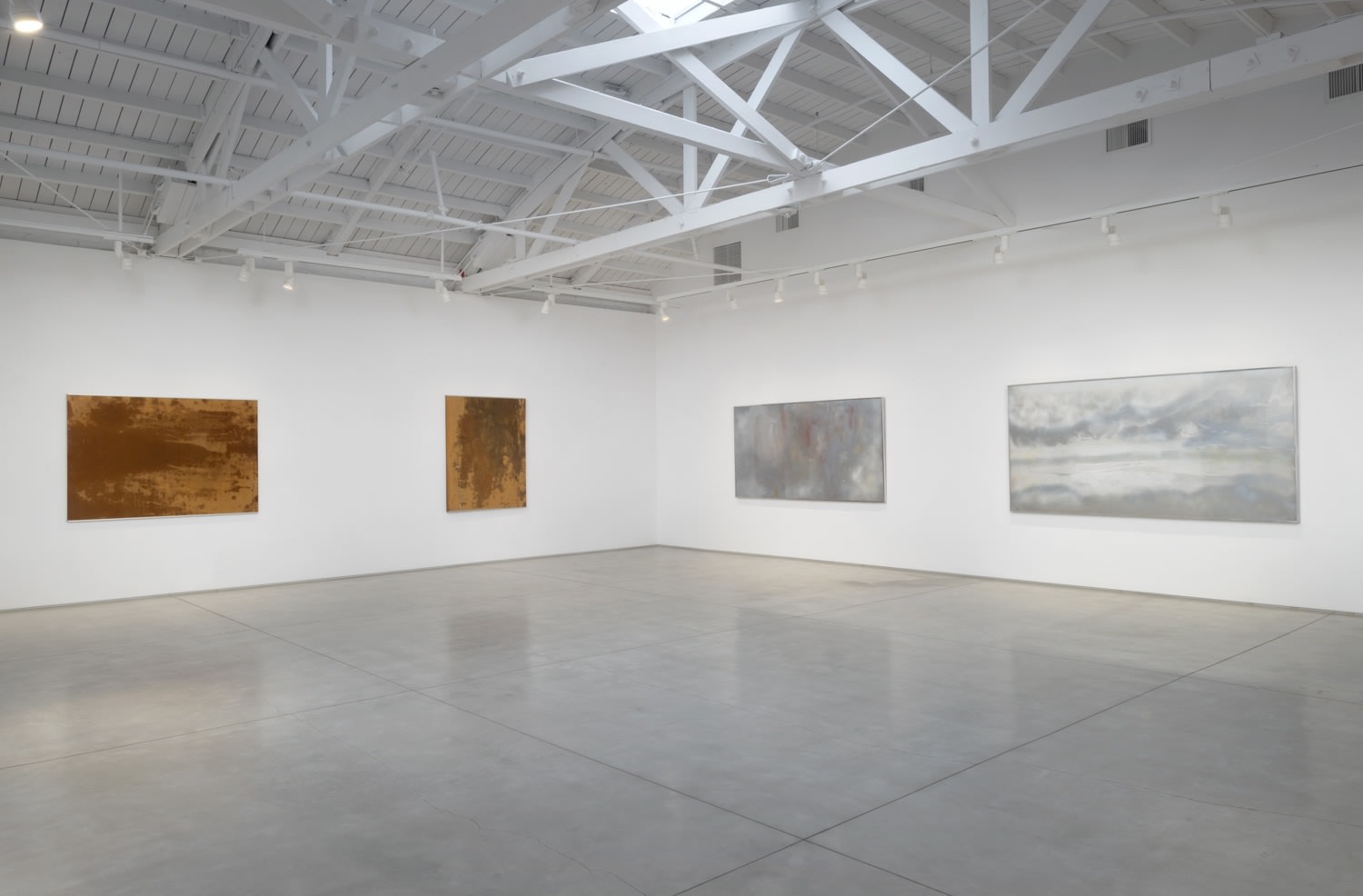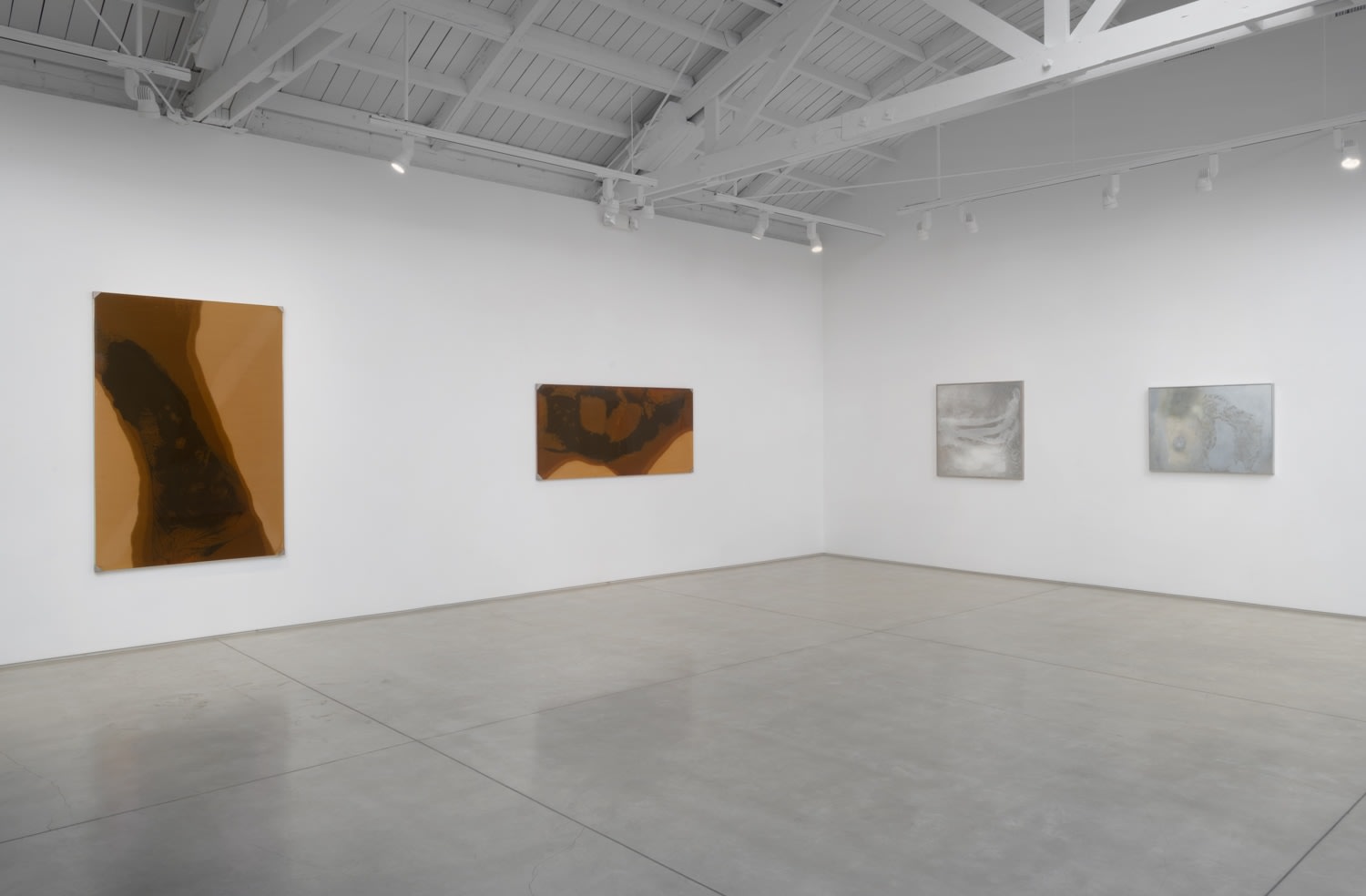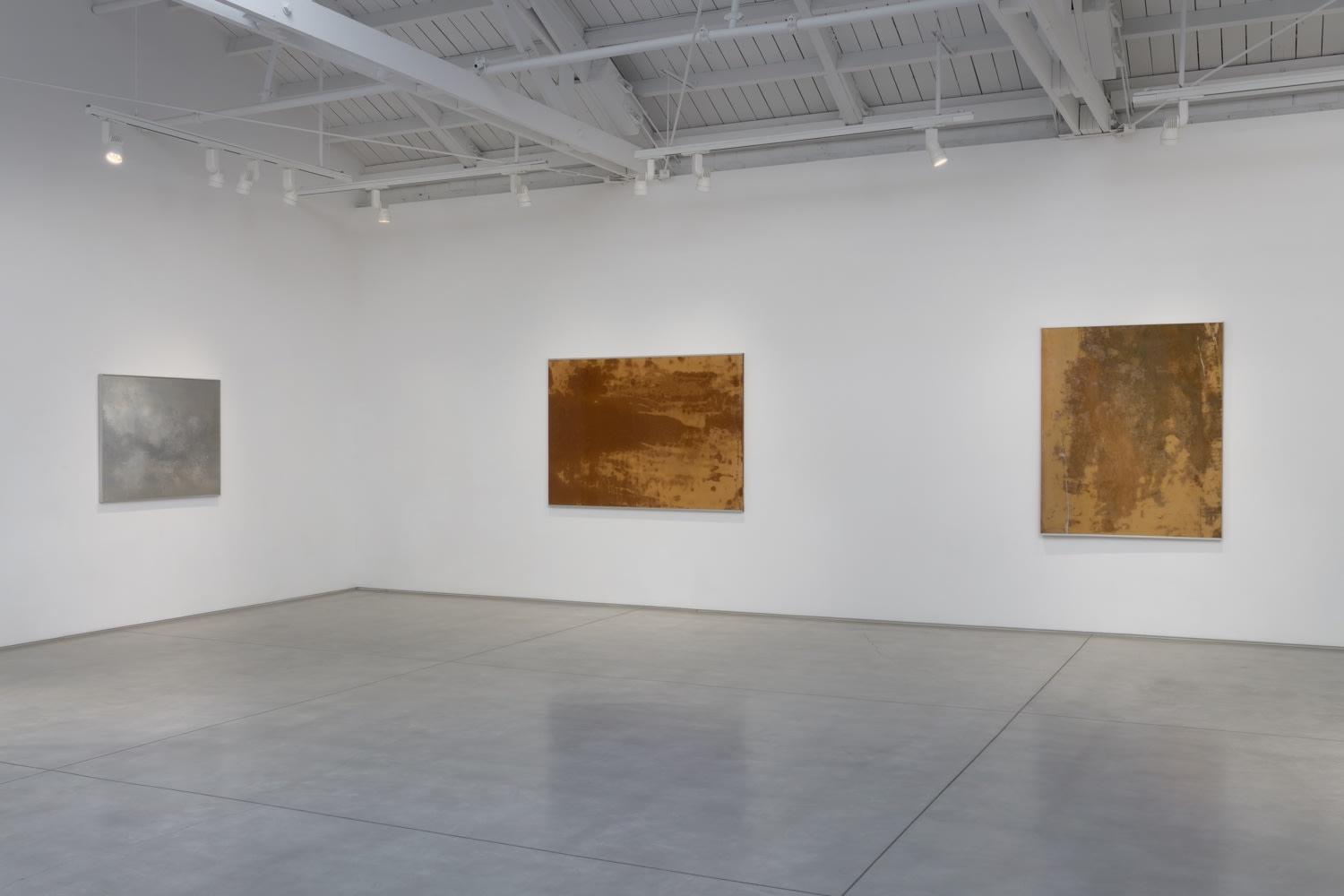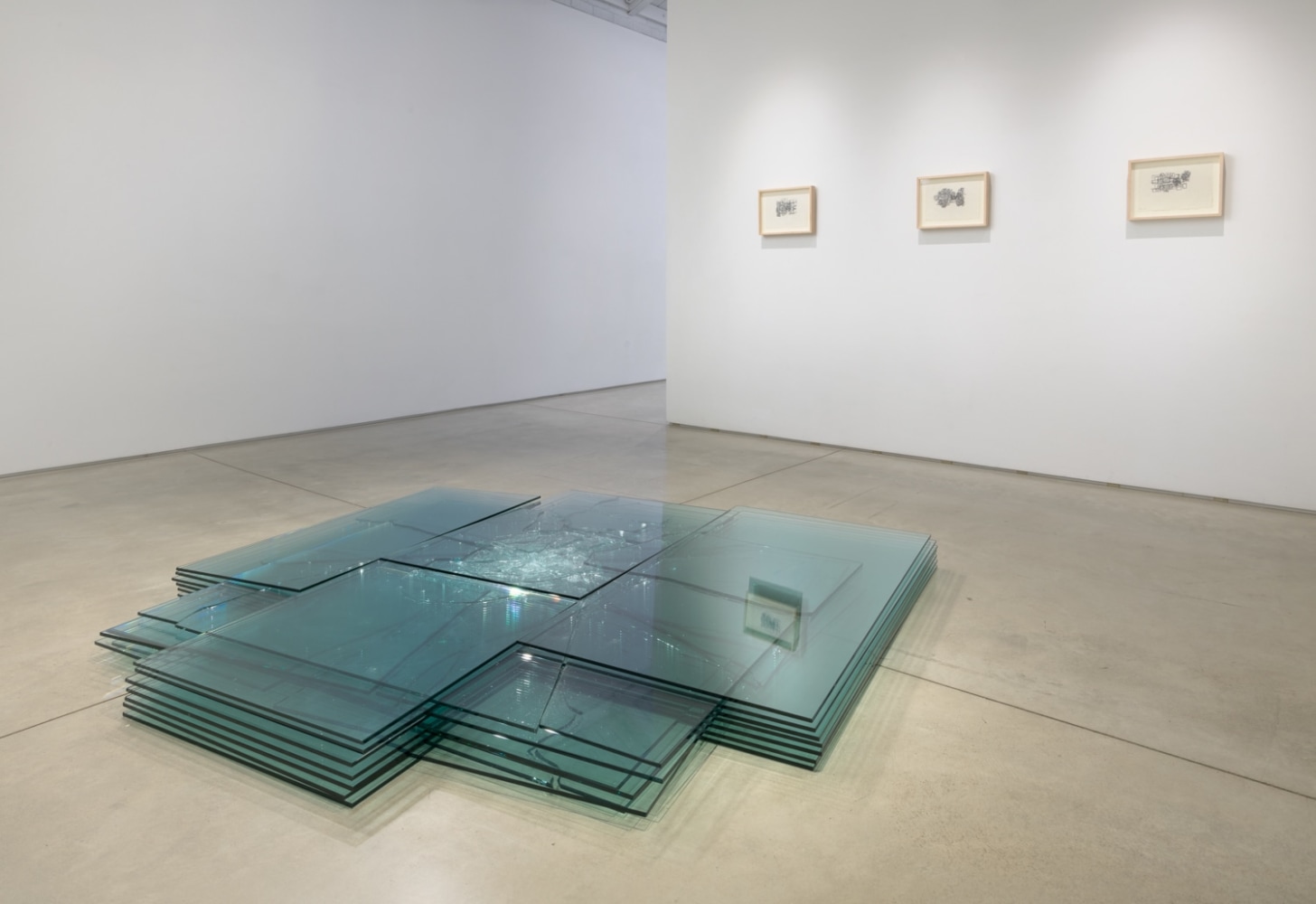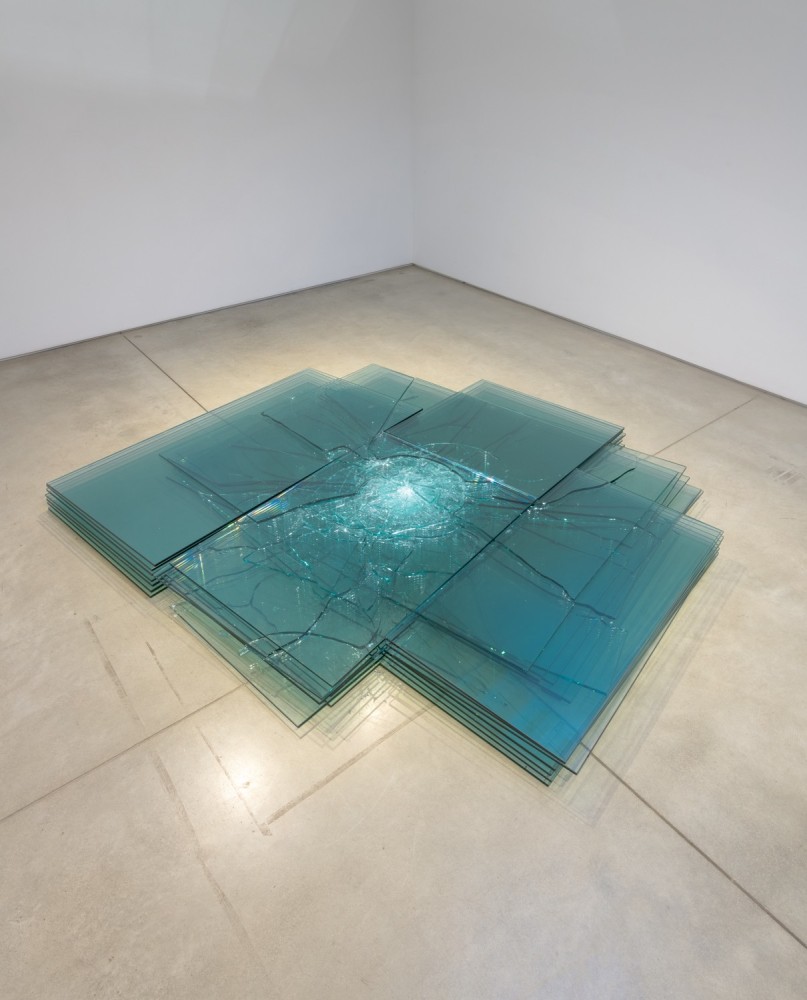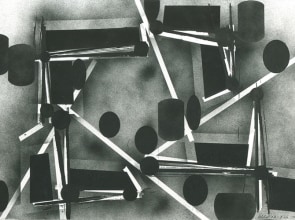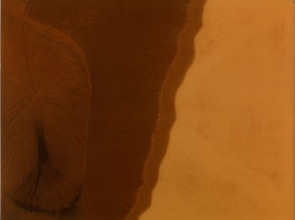
Helène Aylon
January 18 – February 22, 2020
Marc Selwyn Fine Art is pleased to announce the gallery’s first presentation of works by the multimedia artist Helène Aylon. The exhibition features three of Aylon’s abstract series, Elusive Silver, Pouring Formations, and Paintings That Change in Time all created between 1969 and 1977. The seven Elusive Silver works employ industrial materials such as sheet metal, acrylic plastic, and spray paint. Pouring Formations and Paintings That Change in Time consist of linseed oil on paper mounted on Masonite panels.
Beginning in 1969, Aylon experimented with the idea of creating “painting that revealed itself,” in an attempt to introduce feminist consciousness to a medium that had, by then, been firmly dominated by the notion of a heroic, and almost exclusively male, American idiom. Refraining from mark making (“I didn’t want to be hammered in by exactitudes”), she allowed the works themselves to inform the evolution of her ideas.
In Aylon’s first process-driven body of work, Elusive Silver, her surfaces reflect and refract an inner glow that changes visually with the viewer’s stance and the light conditions in which they are seen. These perceptual changes evolved into her later challenging of established norms with works which physically change with the passage of time.
Aylon’s Paintings That Change in Time and the Pouring Formations series were completed after the artist’s move from New York to San Francisco in 1973. In contrast to the simultaneous formlessness and material complexity of the Elusive Silver works, these were powerful graphic statements that questioned the traditional notions of permanence in painting as Aylon allowed the sepia colored linseed oil to seep naturally into the surface of the paper. According to the artist, “they were about process rather than completion, which I think of as feminist.”
Born in 1931 and raised within the Ultra-Orthodox Jewish community in Boro Park, Brooklyn, Helène Aylon was married to a rabbi at the age of eighteen and became widowed, with two young children, at the age of thirty. While in her mid-twenties, she enrolled as an art major at Brooklyn College, taking classes with Ad Reinhardt who became her friend and mentor. In her 2012 autobiography, Whatever is Contained Must Be Released, Aylon writes that “Reinhardt encouraged my new elusive work, and pushed me to go beyond traditional painting.” He also arranged for a studio visit with Mark Rothko, a transformative event for the young artist who, having entered the secular art world, felt free to share with Rothko the spiritual foundations of their common cultural backgrounds.
Works from the Elusive Silver series were first seen in 1970 at the Max Hutchinson Gallery in Soho. Following a second solo show there in 1972, she was represented by the legendary art dealer Betty Parsons. Since then, Aylon has participated in one-person and group shows in museums and galleries throughout the United States, Europe, and Israel. She has been the recipient of numerous honors and awards including, among many others, three awards from the Pollock Krasner Foundation, two fellowships from the National Endowment for the Arts, two fellowships from the New York Foundation for the Arts and a Lifetime Achievement Award from the Women’s Caucus for Art. Recent exhibitions include Shifting Terrain at the San Francisco Museum of Modern Art (through Spring 2020) and By Any Means: Contemporary Drawings from the Morgan, Morgan Library and Museum, New York in 2019. Works by the artist are in the collections of the Whitney Museum of American Art; San Francisco Museum of Modern Art; Oakland Art Museum; Virginia Museum of Fine Arts; Jewish Museum, New York; Morgan Library and Museum, New York, among others.
Barry Le Va
January 18 – February 22, 2020
Marc Selwyn Fine Art is pleased to announce the gallery’s third exhibition of work by Barry Le Va. Although a member of the founding generation of Minimalism and Conceptualism, Le Va remains relevant today, especially in his work’s relationship to process, performance and installation. The exhibition will feature a special installation in the project gallery, Shattered Off Center, 1968-71/2020.
Le Va pushed the boundaries of sculpture beyond the pedestal by using unconventional and industrial materials and distributing them by dropping, throwing, blowing, slashing or crushing them in the space. He highlights the tension between chaos and order with works which contain both premeditated elements and outcomes produced by chance. In this work, Le Va stacks multiple glass sheets which are then shattered at intervals with a sledgehammer. The randomness of the resulting cracks and shards contrasts with the angular edges of the glass, while situational and environmental variables result in a unique, site-specific installation.
According to Klaus Kertess, “The violence of many of these works has been compared to the violence endemic to their time – from Vietnam to Watts to Kent State. However, Le Va’s scattering of matter was not politically motivated in the narrow sense. […] Le Va was testing (atomizing) the limits of sculpture and pushing the unclearly marked border between creation and destruction dangerously close to the latter.”
Born in Long Beach, California, Barry Le Va received his BFA from Otis Art Institute in 1967. Le Va has exhibited internationally, and his works are in the collection of Museum of Contemporary Art, Los Angeles; Centre Pompidou, Paris; Walker Art Center, Minneapolis; National Gallery of Art, Washington DC; Museum Ludwig, Cologne; Whitney Museum of American Art, among many others. Currently, Le Va is the subject of a year long survey at Dia:Beacon, New York on view through November 2020.

